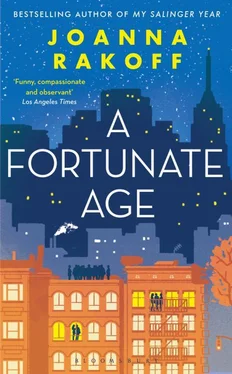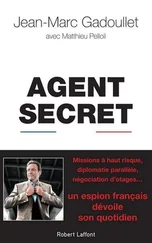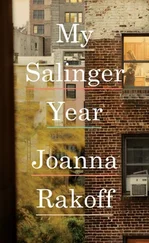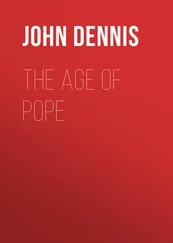“I know,” murmured Lil, her mind returning uncomfortably to her incompletes. “Let me introduce you to some people…”
Everyone had come out: Her few friends from Columbia—a trio of tiny dark-haired women—smoked fiendishly in a corner, and made husky conversation with Tuck’s friends from Columbia, glowering, bearded men of South Asian and Irish and Soviet-Jewish extraction, in rumpled shirts and khakis, from whose mouths frequently issued terms like “Marxist” and “hegemony” and “fascist” and “post-structural fallacy.” Caitlin and Rob stood by the bar with Tuck’s college friends and a little troupe of publishing people from Tuck’s agency.
And for the first time since the wedding the entire group came, all of them bearing news. Emily’s play—the dark, satirical thing she’d done in the fall—had been picked up for a respected off-Broadway theater. Dave’s band was opening for a big band in a few weeks, at Irving Plaza. “Who?” asked Tal. Dave gave them a wry smile.
“Don’t laugh,” he said, “Reynold Marks.”
“ Reynold Marks ,” marveled Tal. “Wow.”
“Isn’t Reynold Marks, like, a complete tool?” asked Emily.
“He’s actually really nice,” said Dave, his jaw tensing. “It’s his fans who are tools.”
“But you’ve only played, like, once,” said Lil, wrinkling her brow, “haven’t you? Have you done other shows and not invited us?”
Dave shook his head. “He saw us when we played at Mercury Lounge. It’s crazy.”
“That’s amazing,” said Sadie, with a wide, closemouthed grin. They could see she wanted to say something more.
“What?” asked Dave, irritably.
“Nothing,” she said, wrapping her arms around Tal. “Tell them,” she said to him. Tal shook his head. “He’s got the lead in a big movie.”
“It’s not a big movie,” said Tal, grimacing. “It’s just a movie.”
“It’s a John Cusack movie,” Sadie explained. “Directed by that guy who did Se7en .”
“That sounds big,” said Dave.
“That’s great,” Emily said, but the rest could see she was rattled.
“It’s stupid,” said Tal, running his hands over his face. He looked, they all thought, tired and distracted.
“It’s not ,” said Sadie, twining her fingers in his. “It’s a thriller. It’s good.”
“So, you’re, like, going to L.A.?” asked Dave.
“For this, yeah,” Tal nodded. “In three weeks.” Silently, they were all asking, Will you stay? Will you bring Sadie with you? Or, more accurately, Will Sadie come with you?
And then Beth, her cheeks flushed, said, “I have news, too.” They all turned to look at her and she awkwardly held out her hand. “I’m getting married.”
“To Will?” asked Dave.
Beth’s face paled. “Of course to Will.”
“But you just met,” said Lil.
“We met in October,” said Beth, her voice halting and choked. “That was eight months ago.” She took a deep breath. “You and Tuck had only known each other nine months when you got engaged.”
“You did the calculations,” said Dave, smirking.
Beth’s face began to crumple, her liquid features drawing closer together, at its center, as if for protection. They had all seen this before. “I knew you wouldn’t be happy,” she sobbed. “I know you don’t like him.” For a moment they watched, in silence, as the tears began to flow, then Tal stepped forward and wrapped his arms around Beth.
“Beth, don’t be crazy,” he said, in his soft, firm voice.
“Seriously, we’re thrilled,” Sadie chimed in, rubbing her friend’s back. “Will is great . And he loves you. This is great . Dave was just teasing you.”
“I was just teasing,” said Dave, with a barely audible sigh.
And then they were upon her, with a thousand questions: Had they picked a date for the wedding? Had she told her parents? Would Sam come and live with them? Would they stay in Tuck’s old apartment? And, wait, where was Will?
“He’s in San Jose, reporting on that big merger,” she explained, still hiccuping. “He had to fly out yesterday. He was really sad to miss the party. He’s so happy for Tuck.”
“You have a kind of bridal glow ,” Lil told her, and it was true. Her cheeks were rosy (with blush, but no matter), her lips dewily glossed, her thin, sandy hair piled dramatically atop her head, a smallish diamond glittering on her left hand. Once she recovered from her tears—apologizing, as she always did—she swayed lightly to the music, wound her way back and forth from the kitchen, saying hello to everyone she passed, the skirt of her blue dress swishing around her knees. She sipped scotch from a tumbler, cigarette dangling from her hand, chatting gamely with the various members of Dave’s band, who showed up near ten with a six-pack of Schlitz and prowled the place shyly in a pack, and Kapklein, who peered owlishly at her over the tops of his wire-rim glasses.
They had all promised Lil that they would stay until midnight when a band—that is, the band , the band that had crashed Lil’s wedding—would play. “They opened for Beulah last night,” Lil confided, “at Bowery Ballroom.”
“Yeah,” Dave confirmed. “They’re getting a lot of play on college radio.”
“Do you like them?” asked Lil, in such a way that there was only one appropriate answer.
“They’re okay,” he conceded. “They’re very tight. I’m just not loving that produced eighties sort of sound.” He shrugged. “But everyone’s doing it. It’s cool.”
Soon after, Lil began to worry that she wouldn’t be able to make it to midnight, much less beyond. She installed herself on the couch with a glass of wine and one of Kapklein’s colleagues, an extraordinarily tall young man with dun-colored hair, a mildly self-satisfied expression, and the skittish air of a greyhound. His name was Tom Satville and he was quick to tell Lil that he himself was not just an agent, but a writer, too.
“Iowa,” he explained. “Fiction. I’m finishing up a novel.”
“Wow,” said Lil. “How do you have time?”
He took off his glasses, revealing small, round brown eyes, with deep maroon smudges under them. “I don’t sleep much.”
“Oh.” Lil nodded. “I wish I could do that. I’d get so much more done. Tuck is like you. He can stay up all night working.” In fact, though he often stayed up all night, she wasn’t sure he was actually working. The television often seemed to be on.
Tom Satville smiled in a way that made her slightly uncomfortable. “Yeah, well, you kind of have to be like that these days. The workday is getting longer and longer. We’re just a small agency and nobody leaves before seven. Nobody takes lunch…” This was clearly a favorite subject of his.
“Yes,” she said, “that’s partly what Tuck’s book is about—”
“That’s what my novel is about, too. It’s set in an office, an ad agency—”
“At Boom Time , it was, like, the staffers lived there . Tuck kind of loved it, though.”
“But you didn’t?” he asked in a husky voice, draping his arm across the back of the couch on which they sat. She pulled her skirt down over her knees.
“I don’t know,” she said. “I liked that he loved what he was doing. He was so excited about it.” She remembered those evenings, the previous summer, when he’d call her as he left his office, the sun just setting, the air cooling, and say, “Meet me for dinner.” She’d shower quickly and pull on a sundress, run the ten blocks to Oznot’s, where they’d sit in the garden and drink Lillet—this was why she’d served it at the wedding, because of those happy nights—and eat thin slices of lamb. Each day there’d been a new story, a new triumph, just as when they’d first met, the previous fall, and spent hours at Aggie’s, drinking bourbon and reciting lines of Wright and Lowell and Berryman. That all seemed so long ago, and she and Tuck so young. “I guess I missed him,” she told Tom Satville. “We’d, you know, been in school together. So I’d seen him all day, every day.”
Читать дальше












